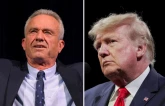
Before writing this article, I did a detailed review of his public speeches online and also corresponded with some notable commentators and political analysts to gain a spectrum of views about his performance. The most common critique which one hears from liberal commentators is that he is chameleonic in his statements before local versus foreign audiences and shows ambivalence on issues of principle, such as discriminatory laws towards women and minorities. One commentator referred to Mr Khan’s admirers as “jeaned jihadis”, essentially suggesting that he appeals to the sensibilities of religiously inclined youth with a modern twist. Critics of Mr Khan are not just the liberal intelligentsia but also those part of conservative security establishments such as Zaid Hamid, who strongly rebuked Mr Khan for repeatedly criticising the army’s operations in the Frontier. Interestingly enough, Mr Hamid’s support of the Swat operation against the Taliban put his views in synch with liberals who usually despise him! At least they were able to find something to agree on!
Imran Khan’s uncompromising antagonism towards any and all existing political parties reflects demagoguery rather than leadership. He appears to be against most existing policies but is unable to provide a clear path of action to deal with intractable issues that confront the country. His usual response is a unilateral opposition to any kind of aggression, favouring dialogue to solve all problems, but such vacuous claims to passivism appear naïve in our current predicament. No doubt there is room for greater diplomacy with the religious right, but what should we do when tough decisions about ideology are to be made, particularly with those who strive to impose their values on the rest of society? This is where Mr Khan is also on shaky ground — because of his secular lifestyle that is in sharp contrast with his willingness to consider the demands of the jihadis. This uneasy alliance, ironically, reflects more positively on the religious groups than on him, because it shows that they are at least willing to forgive the past ‘sins’ of an erstwhile playboy for his current posture!
The cause for radicalisation that Imran Khan usually provides in his statements to the media is the US invasion of Afghanistan in 2001, but this is clearly an oversimplification of history. To use the analogy offered by Pervez Hoodbhoy, “America may have lit the match,” but the combustible material had been neatly arranged for ignition by our own political follies. Undoing these follies will require us to make some tough principled decisions, which Imran Khan is capable of doing, but he has misplaced fervour in that regard as well. For example, fuming with fury over the MQM leadership, which, despite many indiscretions, has actually brought a modicum of grassroots politics to the country, was a misuse of bravado. Perhaps the same ‘courageous’ stance could have been used against the clerical leadership who refuse to consider the issue of respectful reform of our antiquated system of laws through the political process. Imran Khan’s recent statements on the Raymond Davis affair also pander to populism and generate more heat than light.
Despite his poor electoral performance, no one should laugh off the ‘Imran Khan factor’. He may reinvent himself again as an alternative to political dynasties and feudal entitlement. If Imran Khan can reconsider his approach to politics with less cynicism and greater care and constancy, his politics may well rise to the same level of credibility for which we all respect his philanthropic compassion.
Published in The Express Tribune, February 22nd, 2011.
1731570357-0/elon-musk-(1)1731570357-0-405x300.webp)

1731673687-0/BeFunky-collage-(63)1731673687-0-165x106.webp)









COMMENTS (69)
Comments are moderated and generally will be posted if they are on-topic and not abusive.
For more information, please see our Comments FAQ